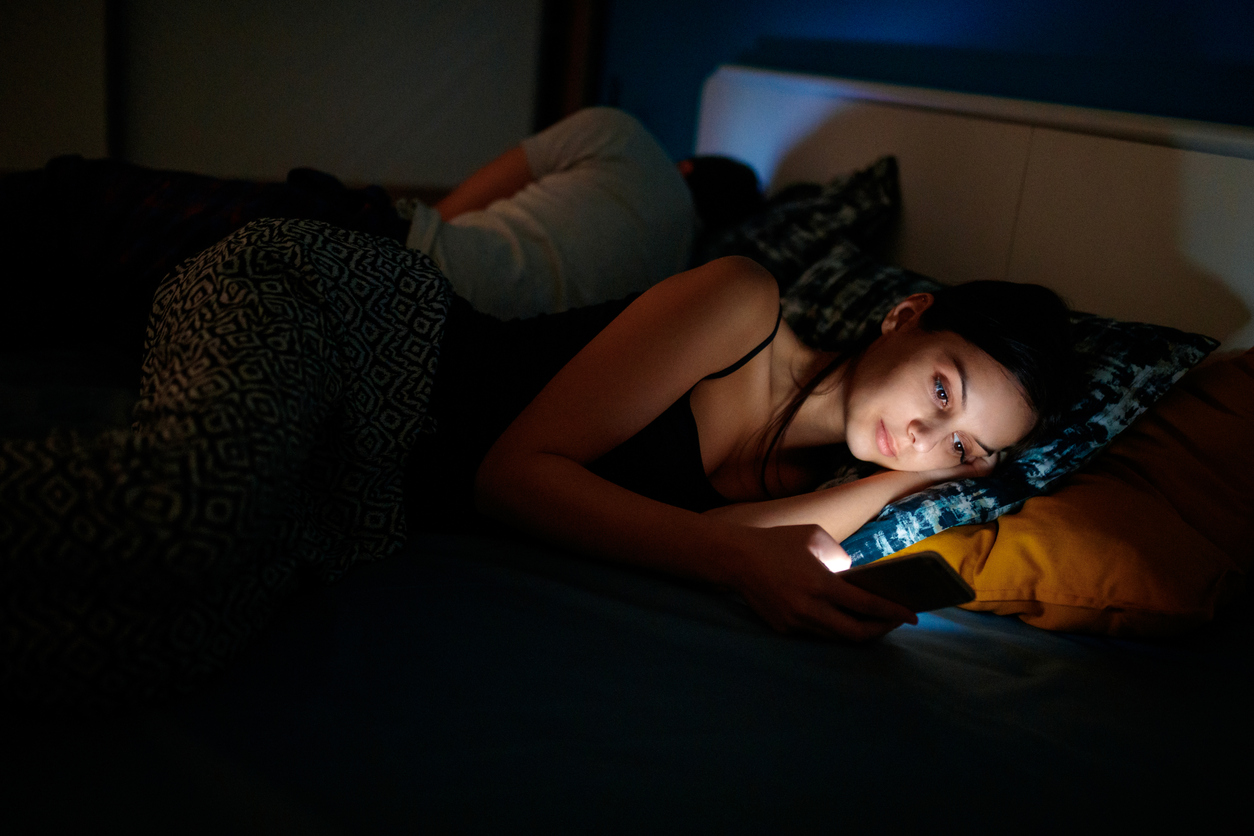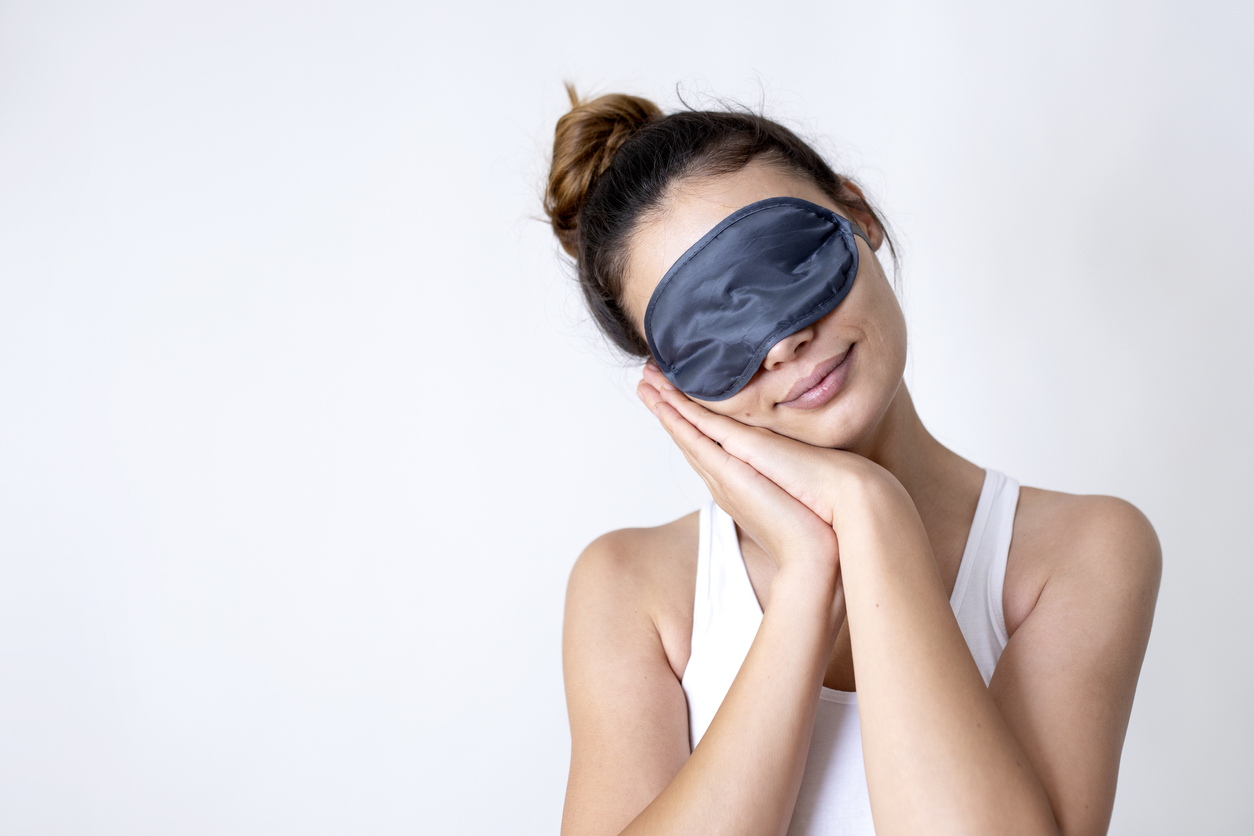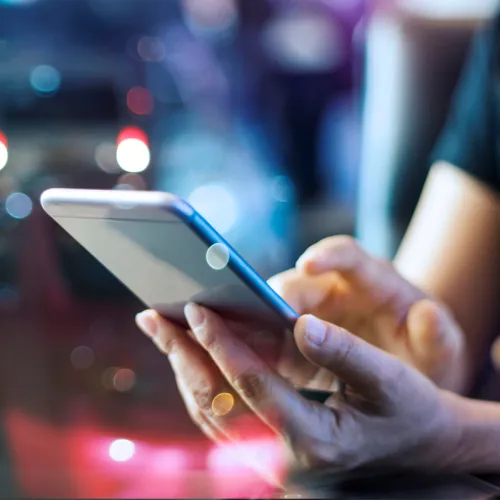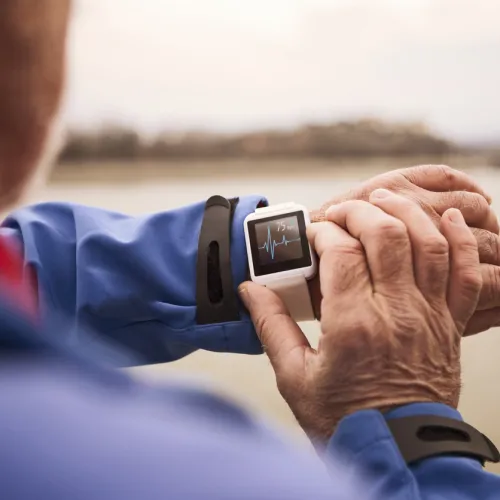Share
What is Blue Light?
 Blue light refers to the artificial light that is emitted from technology devices such as TV’s, tablets and cell phones. The light emitted disrupts the body’s production of melatonin (a hormone that’s created and released by a small gland in the brain at the first signs of darkness). It involves our body’s internal clock and the regulation of our sleep and aids in our sleep and wake functions. Melatonin is produced by animals (at night), can be found in some fruits and vegetables and can also be bought as supplement (to treat insomnia and jet lag).
Blue light refers to the artificial light that is emitted from technology devices such as TV’s, tablets and cell phones. The light emitted disrupts the body’s production of melatonin (a hormone that’s created and released by a small gland in the brain at the first signs of darkness). It involves our body’s internal clock and the regulation of our sleep and aids in our sleep and wake functions. Melatonin is produced by animals (at night), can be found in some fruits and vegetables and can also be bought as supplement (to treat insomnia and jet lag).
Blue light during the day is beneficial as it affects our mood, reaction time and attention. Daylight keeps our internal clock aligned with the environment, which is why blue light at night is considered dangerous. Blue light has the potential to create a digital eye strain where one may end up blinking often, the body becomes unsure that it’s time to sleep and results in our sleep cycles being disrupted. We spend majority of our days on a single device or variety of devices, from when we wake until we go to sleep, and even then we get notifications or our minds aren’t resting - so we check our phones during our sleep.
Checking your email or streaming a show before bed may seem harmless, but repeated and lengthy nighttime exposure to blue light is harmful for it reduces the production of melatonin, affecting the sleep you may or may not get. Blue light from devices affects the time and quality of sleep, as blue light disrupts the brain's natural sleep and waking cycle. The body has internal clock (within the brain) that determines whether we stay awake or fall asleep and daylight and darkness determine if not dictate this cycle. The problem with blue light is that it tricks the brain into thinking that it’s daytime, disrupting the cycle that it requires to rest, reducing our sleep duration.
Prevention of Blue Light
Blue light has the highest energy of wavelengths and we are exposed to them each time we use something digital, which could eventually cause permanent damage to eyes. We use a variety of devices throughout the day for both professional and personal reasons, increasing our chances of exposure to blue light.
- For an individual to be alert and productive, they need to eight or nine hours of sleep
- Time spent using electronics before sleeping takes away from that, affecting our health
- Use of electronics at night has an effect on our eyes and potential to affect productivity
We turn the lights off in our rooms but our devices stay connected so lights remain on. Complete prevention to the problem of blue light would be to completely refrain from the screens on technology devices during the evening, before bed or during our rest period. This solution seems impossible as we are constantly connected to our devices as we spend majority of our days speaking to others as well as sharing and seeking information.
 Some ways to prevent blue light from affecting your melatonin levels during the evening is to;
Some ways to prevent blue light from affecting your melatonin levels during the evening is to;
- dim device’s brightness
- put a tint film on your screen
- consider investing in protective goggles or a sleep mask
- lower colour temperature/brightness past minimum setting
- using protective goggles or amber coloured glasses to block blue light
- remove screens from your nighttime routine/ avoid three hours before bed
Each of these suggestions alone or combined can reduce alertness during the evening and make sleep more inviting on a daily basis. You could also consider downloading F.lux, an app designed to make device(s) adjust screen brightness and/or settings depending on the time of day. Once installed, automatic secretion of the blue light occurs in those devices at night. The app essentially adjusts the devices temperature colour according to location and the time of day, resulting in reduced eye strain at night.


